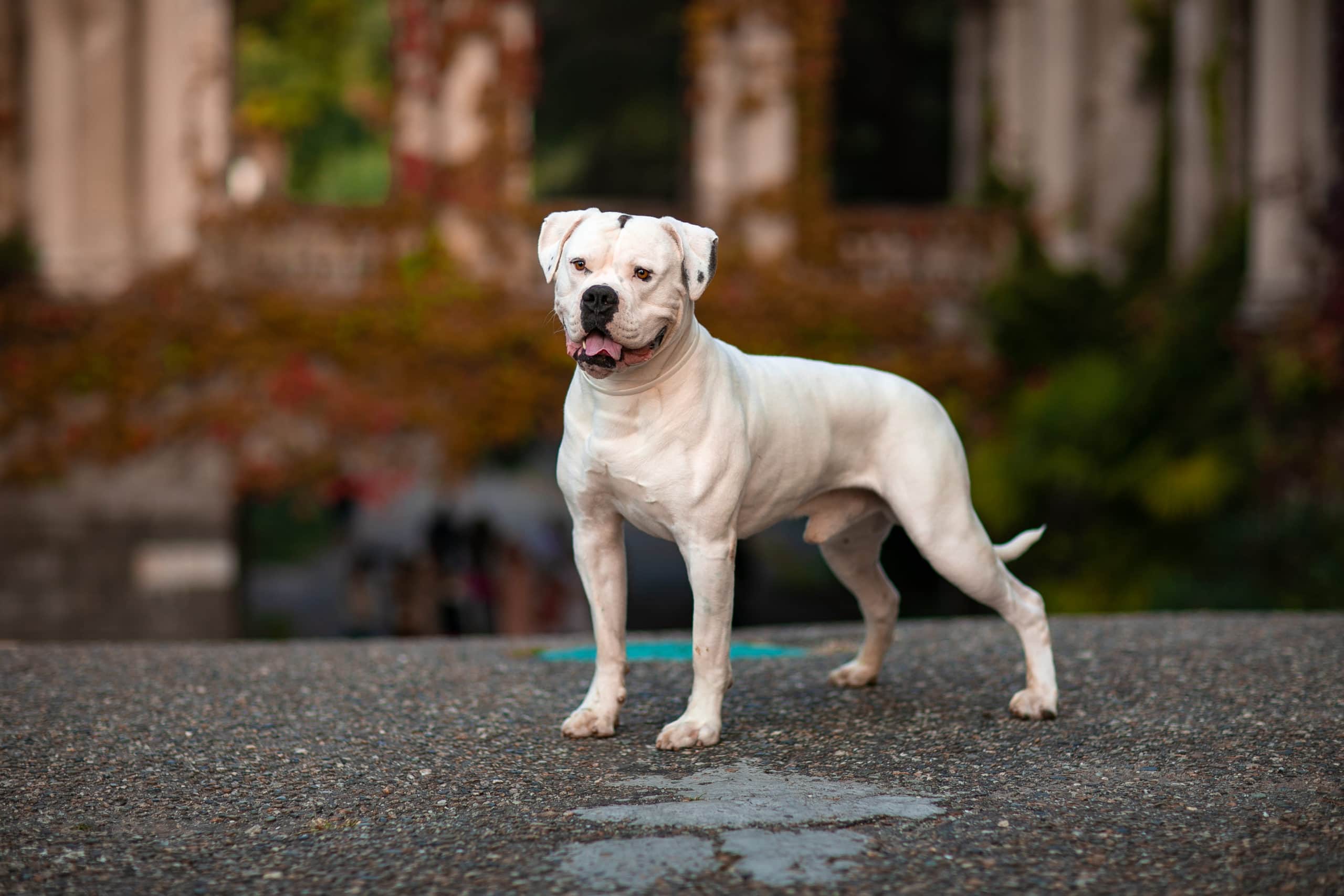Bichon Frise vs. Maltipoo: How Do They Compare?

Updated on
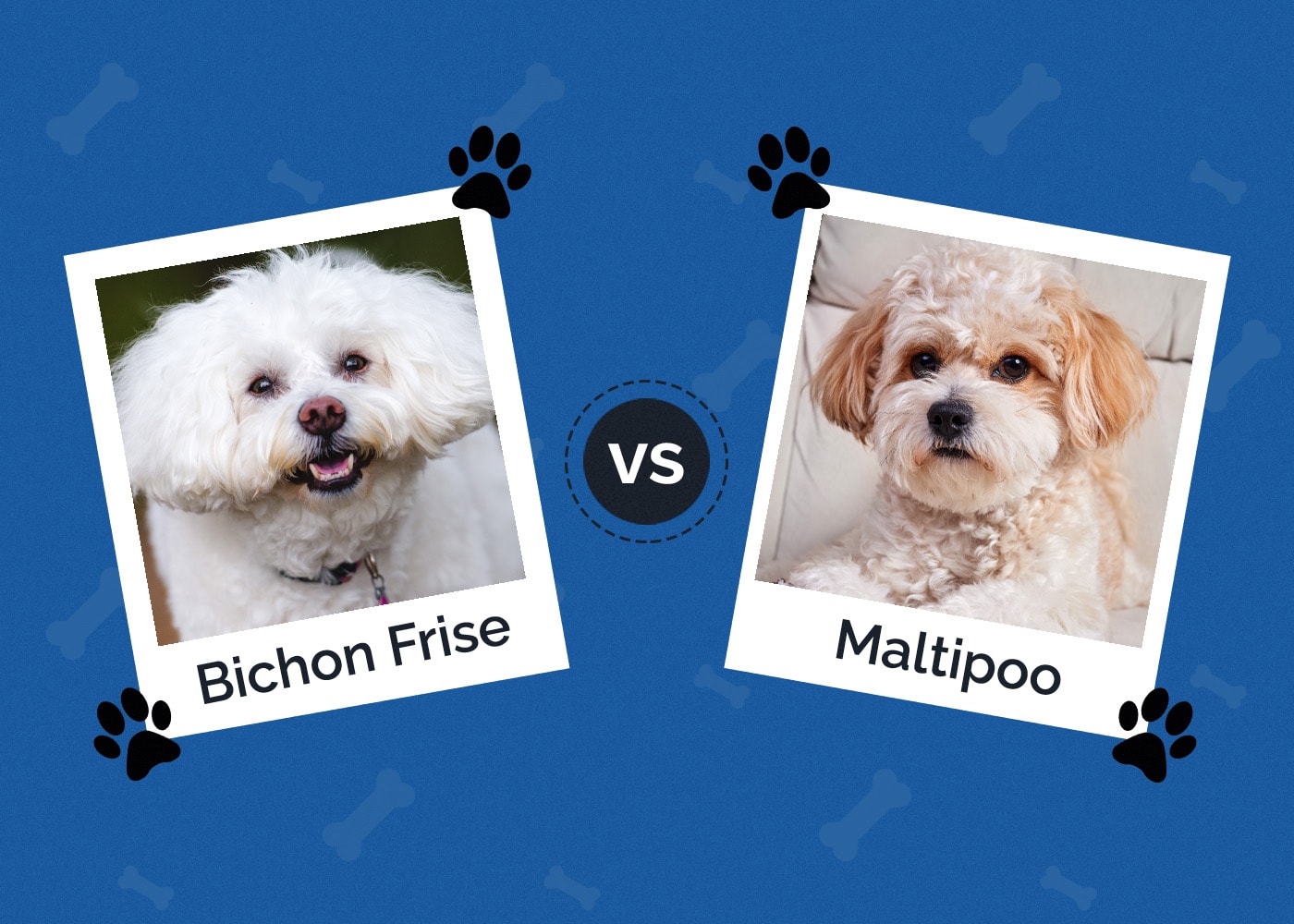
If you’re in the market for a small hypoallergenic dog, there are tons of options out there. And two of the most popular options are the Bichon Frise and the Maltipoo. But how do these two small dogs stack up against each other and which one is right for you?
While they might be similar in a lot of ways, they’re two distinctly different breeds and getting to know each one is the best way to figure out which one is a better fit for you.
Visual Differences
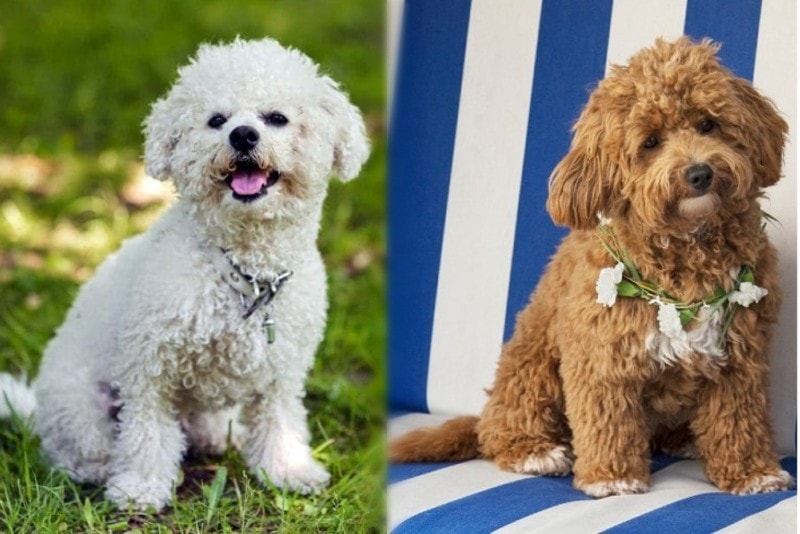
At a Glance
- Average height (adult): 9–12 inches
- Average weight (adult): 13–24 pounds
- Lifespan: 12–15 years
- Exercise: 30 minutes to 1 hour a day
- Grooming needs: High
- Family-friendly: Yes
- Other pet-friendly: Yes
- Temperament: Intelligent, loyal, eager to please
- Average height (adult): 8–14 inches
- Average weight (adult): 5–20 pounds
- Lifespan: 10–15 years
- Exercise: 40 minutes a day
- Grooming needs: Moderate
- Family-friendly: Yes
- Other pet-friendly: Often
- Temperament: Intelligent, loyal, and eager to please
Bichon Frise Overview

The Bichon Frise is a beautiful purebred dog with a shiny white coat. They’re on the smaller side of things, but this makes them a lot easier to care for in many ways. From their personality to how to care for them, we’ll highlight everything you need to know about these adorable pups here.
Personality / Character
If you’re looking for a family dog with a great personality, the Bichon Frise is a fan favorite around the world. They’re extremely smart, personable, lovable, and eager to please.
They’re outstanding companion dogs, but they’re not the best guard dogs. They just want to love on everyone, and therefore they generally get along great with other dogs, children, and even complete strangers.
But while they’re not going to make much of a guard dog, they tend to make excellent watchdogs. They tend to bark at strangers until they get to meet them, which can be problematic if you live in close quarters.
Training
While the Bichon Frise is well-known for how intelligent they are and how they’re eager to please their owner, one area where this doesn’t hold up is housebreaking. They’re notoriously challenging to housebreak and to fully housebreak them you’ll need to stay consistent for an extended period.
The Bichon Frise responds well to positive reinforcement, and they’re prone to separation anxiety. For training outside of housebreaking aim for one or two training sessions a day that lasts between 15 and 20 minutes each time.
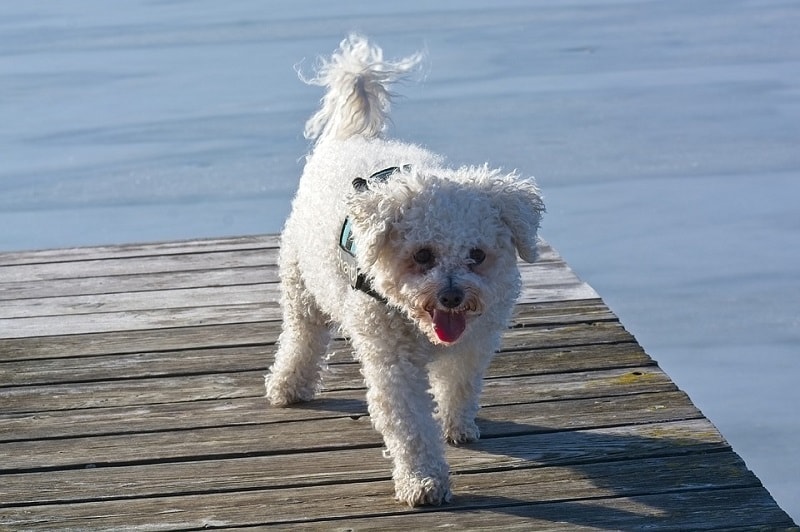
Health & Care
One of the most sought-after factors behind the Bichon Frise is their hypoallergenic coat. You must brush them out daily to keep knots from forming, and you’ll need to take them to a groomer every four to six weeks for a haircut.
When you take them to the groomer, you should have them trim their nails, and you should brush their teeth every day to prevent plaque and tartar build-up.
The Bichon Frise is a dog with a moderate activity level, and you should aim to get them between 30 minutes and 1 hour of activity each day. Pair this with high-quality dog food and you’ll significantly reduce the risk of any health problems cropping up now or in the future.
Suitable for:
The Bichon Frise is a great family dog and gets along great with kids. Whether you live in tight quarters or have plenty of space for them to roam and exercise, the Bichon Frise is a great choice. They also feature a hypoallergenic coat so they’re often an outstanding choice for people with pet allergies.
However, since they tend to bark a bit, if you have close neighbors, they might not be the best dog choice for you.
Maltipoo Overview
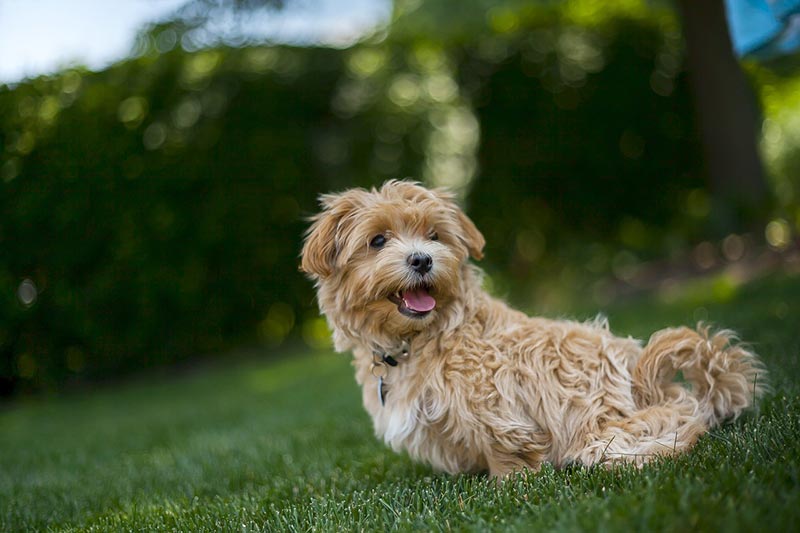
As a cross between the Maltese and the Poodle, the Maltipoo has more variations from dog to dog than the purebred Bichon Frise. The Maltipoo has quite the variance in size and appearance, but one area that stays the same for all Maltipoos is that they’re as hypoallergenic as a dog can be.
But what else should you know about these lovable dogs? We’ll break it all down for you here.
Personality / Character
Because the Maltipoo is a cross between the Poodle and the Maltese, they can get their personality traits from either parent breed or both! The good news is both the Poodle and the Maltese have great personality traits.
The Maltese is gentle, affectionate, intelligent, and trusting, while the Poodle is energetic, intelligent, loyal, graceful, and often a bit goofy. A Maltipoo can have any of these traits, it all comes down to what they inherit from each parent.
Training
Whether your Maltipoo gets their intelligence from their Poodle or Maltese side, it really shouldn’t matter. Both breeds are extremely intelligent and eager to please.
Aim for one or two training sessions a day with each session ranging from 15 to 20 minutes. Only use positive reinforcement during these training sessions and you should be able to train your Maltipoo to complete a wide range of tasks in no time.

Health & Care
Caring for a Maltipoo is generally a pretty straightforward job. You should brush them out once every other day, and you should aim for two 20-minute walks with them each day.
From there, they need trips to the groomer every four to six weeks, and you should have them trim their nails while they’re there. Finally, brush their teeth every day to help prevent future dental problems from occurring.
Suitable for:
The Maltipoo is a great family dog that fits into just about every lifestyle. They’re not large enough to make effective guard dogs, but they can be effective watchdogs. They’re not quite as yappy as the Bichon Frise, making them better suited for apartment living.
The Maltipoo typically gets along great with other pets, especially if you socialize them early on. Whether you have a ton of space or live in a smaller area, the Maltipoo is a great addition to just about any family.
The Cost Factor
When you’re looking at adding a dog to your home, one factor you’ll need to consider is how much each dog costs. So how does the Bichon Frise compare to the Maltipoo?
To get a Bichon Frise puppy you can expect to spend anywhere from $700 to $2,500, depending on the breeder and the “quality” of the dog you’re getting.
While you might expect a Maltipoo to cost significantly less because they’re a cross between two breeds, that’s usually not the case. A Maltipoo puppy will typically cost anywhere between $600 and $4,000.
It all depends on the individual traits you’re looking for and the parents’ pedigree. Whether you’re getting a Bichon Frise or a Maltipoo take your time and find a reputable breeder. While you might be able to save a few bucks by going with a lower-quality breeder, these dogs often develop more health problems costing you more money and causing more heartbreak.
Which Breed Is Right for You?
Because both the Bichon Frise and the Maltipoo cater to the same market of dog owners, there’s no wrong choice between the two breeds. If you want to know exactly what you’re getting the Bichon Frise might be the way to go, but no matter what parent breed the Maltipoo takes after you’re getting a great pet.
In the end, pick which one you like more and go with it! If you like that breed more. You’ll be happier with it, especially since they’re similar in so many ways.
See Also:
Featured Image Credit: (L) Kellymmiller73, Shutterstock | (R) marketlan, Shutterstock





